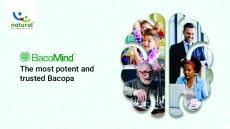Healthy diets linked to higher childhood IQ

The study – published in the European Journal of Epidemiology – examined the association between dietary patterns at 6, 15 and 24 months and intelligence quotient (IQ) scores at 8 years of age in a sample of more than 7000 children.
Led by Dr Lisa Smithers from the University of Adelaide, Australia, the research team analysed data from the UK-based in the Avon Longitudinal Study of Parents and Children (ALSPAC) study, revealing that those fed healthy diets at an early age may have a slightly higher IQ, while those on heavier junk food diets may have a slightly reduced IQ.
"Diet supplies the nutrients needed for the development of brain tissues in the first two years of life, and the aim of this study was to look at what impact diet would have on children's IQs," said Smithers.
"We found that children who were breastfed at six months and had a healthy diet regularly including foods such as legumes, cheese, fruit and vegetables at 15 and 24 months, had an IQ up to two points higher by age eight.
"Those children who had a diet regularly involving biscuits, chocolate, sweets, soft drinks and chips in the first two years of life had IQs up to two points lower by age eight,” she revealed.
The authors concluded that their results suggest dietary patterns from six to 24 months of age c9ould have a ‘small but persistent’ effect on IQ scores at 8 years of age.
Study details
The study looked at data from 7079 children, comparing a range of dietary patterns, including traditional and contemporary home-prepared food, ready-prepared baby foods, breastfeeding, and 'discretionary' or junk foods.
Dietary data was collected by questionnaire and patterns were extracted at each time using principal component analysis, the authors reveal.
“At all ages, higher scores on a Discretionary pattern (characterized by biscuits, chocolate, sweets, soda, crisps) were associated with 1–2 point lower IQ,” say the researchers.
“Breastfeeding pattern at 6 months and Home-made contemporary patterns at 15 and 24 months (herbs, legumes, cheese, raw fruit and vegetables) were associated with 1-to-2 point higher IQ.”
"We also found some negative impact on IQ from ready-prepared baby foods given at six months, but some positive associations when given at 24 months," added Smithers, who said the her findings reinforces the need to provide children with healthy foods at a crucial, formative time in their lives.
"It is important that we consider the longer-term impact of the foods we feed our children," she warned.
Source: European Journal of Epidemiology
Volume 27, Number 7, Pages 525-535, doi: 10.1007/s10654-012-9715-5
“Dietary patterns at 6, 15 and 24 months of age are associated with IQ at 8 years of age”
Authors: Lisa G. Smithers, Rebecca K. Golley, Murthy N. Mittinty, Laima Brazionis, Kate Northstone, et al












